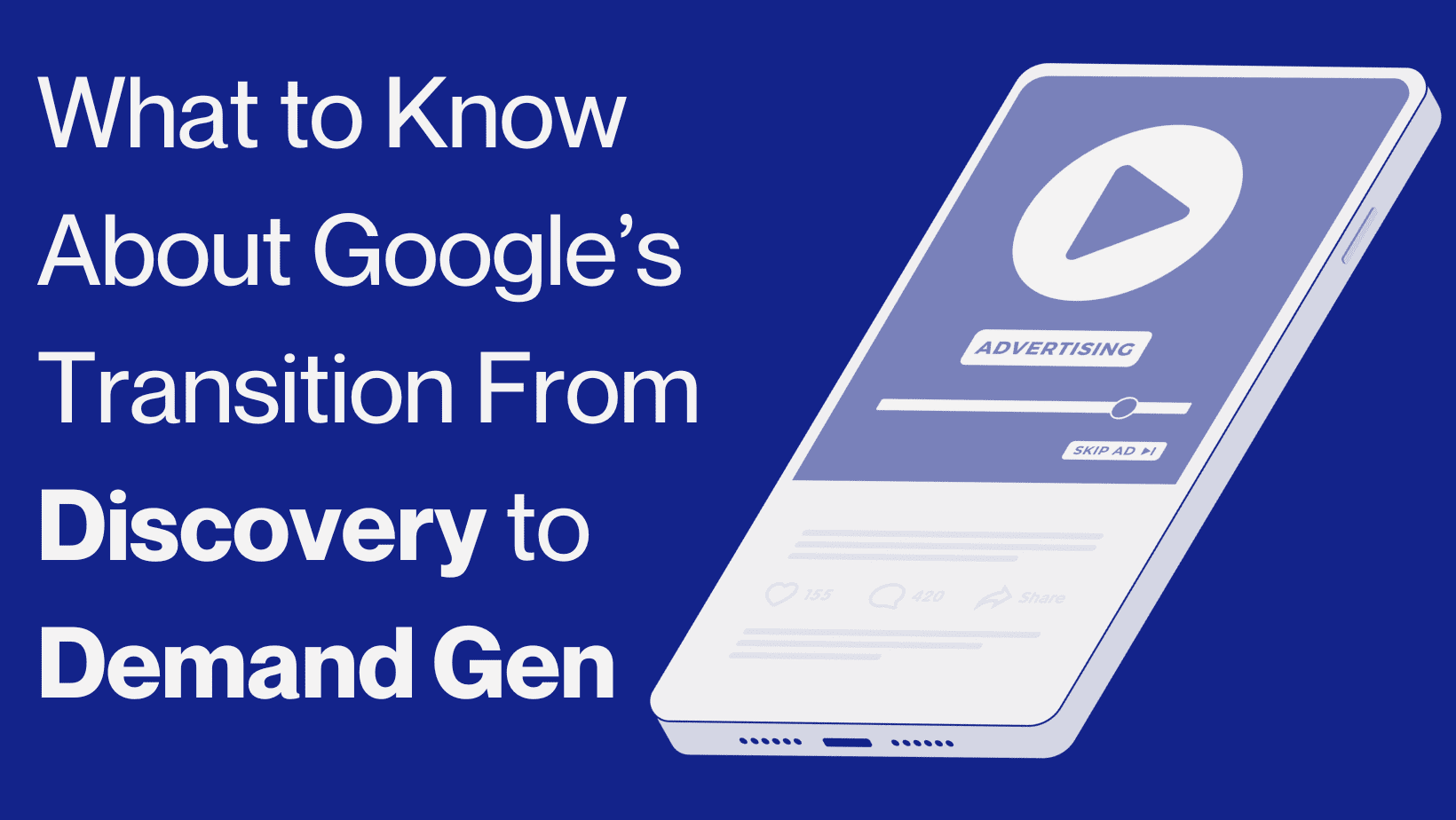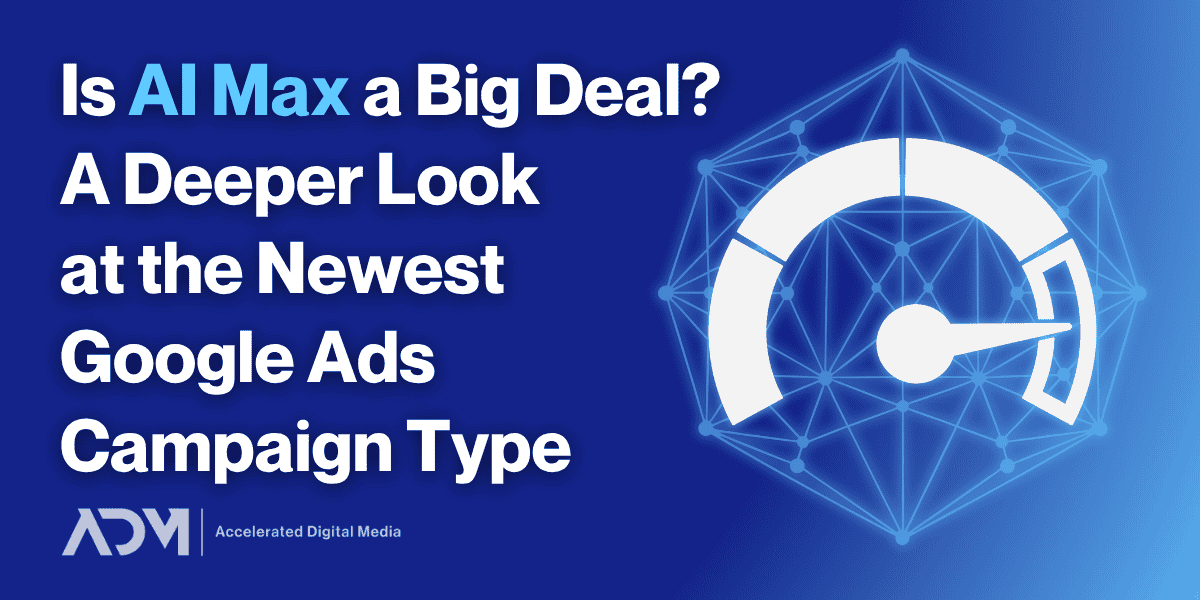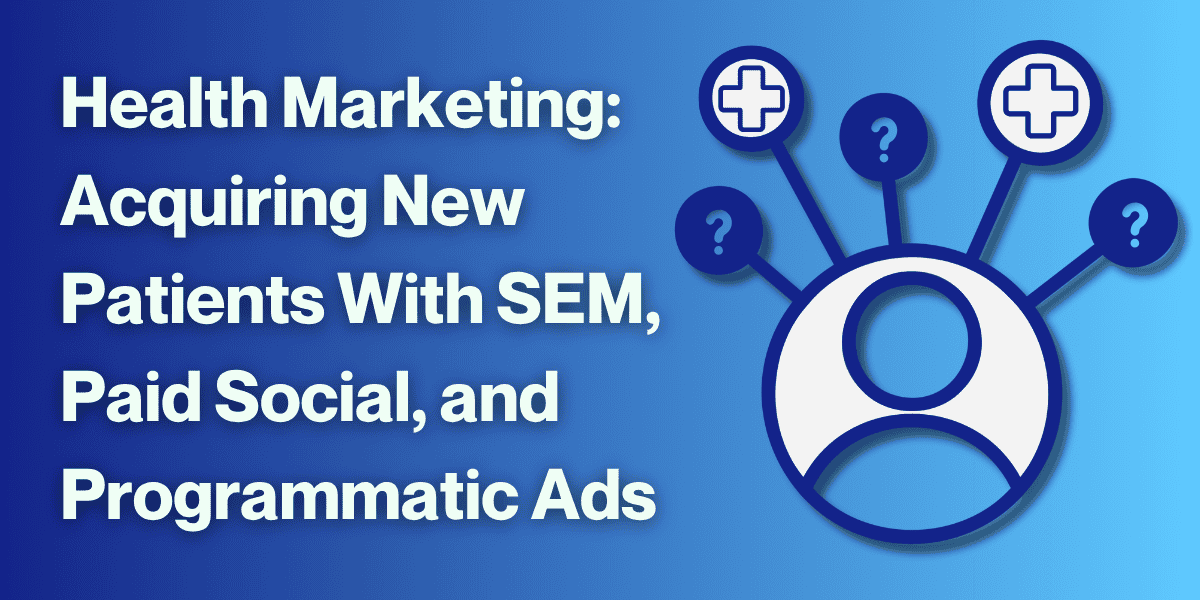New tools continue to reshape digital marketing, and it’s essential to embrace and test them early to stay ahead of the curve. This summer, Google Ads introduced a new campaign type called Demand Gen, which will replace Discovery campaigns in early 2024.
Demand Gen campaigns are driven by AI and meant to deliver high-performing video and image ads across different areas of the Google ecosystem—YouTube, Discovery, and Gmail included. ADM participated in the beta period for these campaigns, which rolled out to all advertisers this month. Here’s what we know and have learned so far about these campaigns.
What are Google Demand Gen Campaigns?
Demand Gen is an automated campaign type that combines Video and Discovery ad campaigns placements, adding AI-powered optimization to video campaigns not unlike what the game-changing Performance Max type does for things like Search and Shopping ads.
In Google’s announcement, it explains the rationale that there isn’t a long delay between a user researching products on YouTube and them taking action—according to their numbers, 91% of users took action “immediately” after discovering a new product or brand through a Google service. Hence the name of the campaigns: Demand Gen is meant to reach users who may be interested in your products but perhaps haven’t yet searched for them or taken action, hence generating demand.
What Formats Do Demand Gen Ads Serve?
Demand Gen campaigns can deliver across multiple placements, including:
- YouTube Shorts
- YouTube In-Stream
- YouTube Feeds
- Discover Feed
- Gmail
This allows brands to showcase their products or services across various channels, expanding their reach and exposure.
How Are Demand Gen Campaigns Different from Discovery Campaigns?
Demand Gen offers all the same placements that you get in Discovery plus the ability to show on YouTube Shorts and In-Stream. But behind the scenes, these campaigns rely heavily on Google’s AI to determine where and how they appear.
Unlike Discovery campaigns, however, Demand Gen offers the ability to bring your engaging visual and video content to more people through Lookalike audiences. These are built by uploading your first-party customer lists and allowing Google’s AI to identify users who may share the same interests and buying preferences as those who have already converted.
In Demand Gen campaigns, creative becomes ever-more important. Similar to the emerging concept in social advertising, the goal is to “let your creative find your audience”—meaning it’s important to be intentional about the imagery and videos you create and deploy, as well as any copy or captions that accompany it. Because you have the power to select audiences with this campaign type, it’s important to gear your creative around the audience and goal of the campaign—remarketing users should obviously be seeing different content than those new to your brand.
How Does Demand Gen Performance Compare to Discovery?
In an early period-over-period comparison, ADM has found that Demand Gen campaigns will likely outperform Discovery. For one eCommerce client, Demand Gen improved on Discovery performance across key KPIs covering both visibility and conversions:
- ROAS improved by 11%
- CPA improved by 7%
- CVR improved by 52%
- CTR improved by 45%
- View-Through Conversions improved by 35%
- Click & View Assists improved 92%
*Pre-Period 7/25 – 8/29; Post-Period 8/30 – 10/4
These campaigns are very new, so they’ll require much more testing to determine their peak performance and best practices—but early returns are very promising.
Do AI Campaigns Take Control Away From Advertisers?
New AI-driven digital marketing campaign types, like Google’s Performance Max and Meta’s Advantage+, offer a trade-off: Increased performance for less advertiser control. Demand Gen campaigns buck that trend somewhat.
Its ad-building and preview tools allow you to see what ads are being delivered to users more simply than you can with Performance Max. The inclusion of audience targeting like Lookalike Audiences, advertisers still retain important influence over who sees their ads. And Demand Gen also lets advertisers set bid strategy targets at the ad group level, also unlike Performance Max—which only allows them at the campaign level.
How Should Advertisers Begin Preparing to Transition from Discovery to Demand Gen?
Google has announced that the formal transition away from Discovery campaigns will take place between January and March of 2024. In the meantime, here’s what ADM recommends doing to prepare:
- Decide how you want to use Demand Gen and how many campaigns you will build (remarketing, prospecting, etc).
- Start building and defining Audiences that will be used in each campaign
- Compile audience lists you wish to use for Lookalikes
- Create audience-specific ads and media to be used in the appropriate ad groups
- Pro-Tip: Each ad group should be targeting a single Audience, so ads within that ad group can be easily designed to appeal to that specific group
What Do These Campaign Types Mean for Advertisers Overall?
Across the digital marketing landscape, there has been an ongoing shift to AI-powered campaign styles that deliver across multiple channels while condensing the campaign-building and targeting process.
Demand Gen campaigns reflect that shift in campaign structure and account management. Previously, advertisers would create their own mix of Display, Video, and/or Discovery campaigns for a “top of funnel” experience, but campaign types like Demand Gen are meant to knock out all the iteration, testing, and budget balancing that entails.
While this simplifies advertisers’ jobs, and the algorithms often improve results, there are still instances where advertisers should establish boundaries or modifications that may go against Google’s best practices. Advertisers need to closely monitor and manage campaigns instead of blindly relying on Google’s automated capabilities.
At Accelerated Digital Media, we’re committed to quickly embracing and testing the latest digital marketing tools as soon as they become available. To learn more about our approach to Demand Gen and other new AI-based campaign types, reach out and set up a free consultation.




